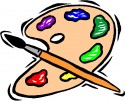Take an Arts Course Along With Your Science Major

As a student beginning a scientific degree, you may be tempted to focus only on your required courses. You might be trying to get all your mandatory credits completed as soon as possible, or you may find so many appealing courses in your program that it is hard to narrow down your choices. However, instead of devoting yourself to your course requirements alone, there are many great reasons why taking an Arts and Humanities course is a great idea for students in the sciences, engineering, and math.
In science and math-heavy majors, the sheer amount of facts, numbers, data and lab work, can sometimes feel overwhelming. Including an Arts course with your electives will give your mind a break, and an opportunity to focus on something different – and chances are you will return to your main coursework clear and refreshed.
Arts and Humanities courses are more than “books and essays”– they teach valuable and transferable skills such as clear, concise, and informative writing; how to structure, present, and defend an argument or theory; and how to think in critical and creative ways.
Most colleges and universities offer a wide variety of courses that will enable you to find something that interests you. Some choices may relate more closely to your original major, such as a course on the history of a specific scientific discipline, or the history of scientific progress in a nation or time period. Courses in philosophy and ethics can help you think and argue critically about topics such as how the use or abuse of science and technology can influence our society and culture.
If you aim for a future scientific career working in a field with international opportunities, language courses are extremely valuable. As the scientific community becomes more international, you will have the opportunity to meet and work with other scientists from countries that may not use English as their primary language. Being able to communicate with other scientists and researchers in their own language holds high value, and gives you the ability to learn directly from their original research, rather than requiring translation into English.
There are also the more creative options, including literature and the fine arts. Courses teaching artistic skills such as drawing, painting, photography, or graphic design will not only offer you the chance to exercise and explore your creativity, but the skills of artistic analysis and design can be useful for creating lab drawings and illustrations for technical documents. Literature courses teach students different perspectives on human nature, and introduce ideas and thoughts that may originate outside the scientific field, but can influence you to explore different theories and methods of creative thinking. Literature studies also give students the skills to learn independently, communicate effectively, and work harmoniously with a community of people expressing different views and opinions.
These are only a few of the many options available. Check out your college or university’s Arts and Humanities course list, and find something new and different that will engage and inspire you!





Laisser un commentaire!